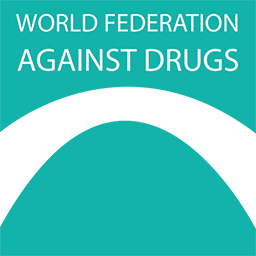WFAD would like to thank all speakers and participant for their attendance and contribution to the Children´s Rights Training on the 4-5th of April 2022. The training was successfully conducted with over 100 participants each day and both the speakers and the participants provided us with great feedback, fruitful presentation including tools and best-practices.
Children´s Rights Training – Day 1
Sara Heine (Narkotikapolitiska Center) provided us with the some foundational information of The Convention of the Rights of the Child (CRC), highlighting Article 2,3,6 and 12. The articles emphasised the primary consideration of the CRC and Sara share how to incorporate specially Article 33 into policies and programs, and the effects of that.
Kavita Ratna (CWC) showcased the effects of acknowledging children’s rights and participations as equality important as the rights of an adult, stressing that children have the rights to be a part of any decision making that impact their reality. Her organisation works primary with vulnerable children in relation to alcohol and they conducted a child-led study to build capacity and to see the risk children face and the prevention that can be implemented. Kavita shared the positive effects of the study.
Mona Örjes (Junis) talked about that all families in addiction are different and unique and the variety of effects substance has on the child´s development. She also share some general approaches when the detecting the risks of substance use disorder and valuable prevention effort that can be used towards those families.
Monica Barzanti (San Patrignano) expressed that there is no one size fits all solution as every family is different. Monica shared a variety of struggle that families in addiction face, treatment and prevention services that exist. Following those examples she thereby highlights the P.I.P.P.I. program, tools of The Child Triangle and P.I.P.P.I. toolkit.
Children´s Rights Training – Day 2
Emily Hennessy presented data on adolescent substance use disorder, the biological, physical and neurological development of the individual that explained both the attitude and effect of drugs. She touch on the recovery process of an adolescent in comperesent to an adult, highlighting that clinical intervention may not be enough as there are many factors and measures that need to work together in order to encourage youth to a more healthy lifestyle.
Rogers Kasirye (UYDEL) shared the negative impact of drugs on adolescents and the combine issues that triggers the use of drugs. He provides the participants with tool on how to reach them and support them by sharing the best-practices of this organisation.
SoY encouraged the involvement of youth and highlighted the importance to work with the best interest of and protection of the child by referring to the CRC. SoY explain the role of social media and normalisation of drug and the effect it has on youth and gave is some tool organisations can use.


Leave a Reply
You must be logged in to post a comment.